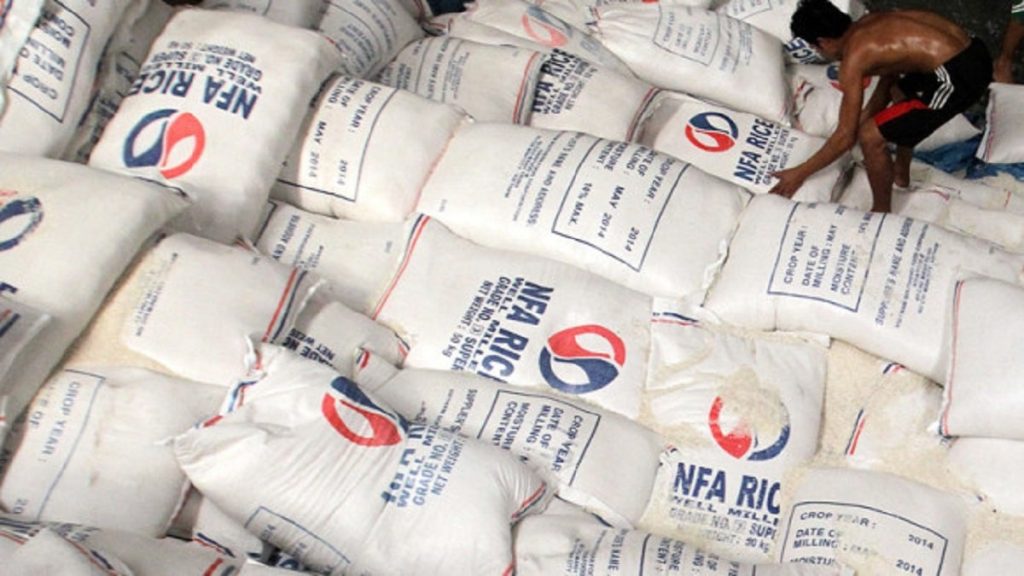Tags
NFA seeks P9 billion additional budget to increase rice buffer stock.
By: Jordeene B. Lagare

MANILA, Philippines — The National Food Authority (NFA) is seeking an additional budget of P9 billion this year to cover the additional cost of increasing its buffer stock, as mandated by the amended Rice Tariffication Law.
Republic Act No. 12078, the amended RTL signed by President Ferdinand Marcos Jr. last December, now requires the NFA to maintain a buffer stock covering 15 days of national rice consumption, up from the previous nine days.
“We were initially allocated a budget of P9 billion for buffer stocking this year, based on the nine-day requirement,” NFA administrator Larry Lacson said in a statement on Wednesday.
“But the additional six days will necessitate an extra P9 billion for palay procurement considering that our palay price procurement per kilo [will] increase in 2024,” he added.
Lacson noted that the additional six days will require the grains agency to procure approximately 300,000 metric tons of palay from local farmers at an estimated price of P23 per kilogram.
The average national consumption is pegged at 37,000 metric tons of rice a day.
Agriculture Secretary Francisco Tiu Laurel Jr. said the NFA’s palay procurement should ideally account for up to 20 percent of the country’s total domestic production—around 4 million metric tons—compared to the current rate of approximately 3-4 percent currently.
“The NFA used to be a market maker—both a buyer and seller of rice. Now it is restricted to buffer stocking and buying rice from local rice farmers. We aim to restore its influence on palay pricing by purchasing more local rice, helping to boost Filipino farmers’ profitability,” said Tiu Laurel, also the NFA Council chair.
Per RA No. 12078, the NFA also receives P2 billion from rice tariffs above the P30 billion allocated to the Rice Competitiveness Enhancement Fund (RCEF).
The RCEF provides funding for various programs aimed at boosting farmers’ productivity and increasing their income and competitiveness after liberalizing rice trading in the Philippines.
The law requires the NFA to maintain an optimal level of rice inventory to sustain the government’s disaster relief programs during natural or man-made calamities and to address food security emergencies on rice. It should be sourced solely from local farmers.
Food security emergency
The same NFA stocks can be sold to areas where there is a rice supply shortage or an extraordinary increase in rice prices once the Department of Agriculture (DA) declares a food security emergency for rice.
The DA has been floating the possibility of making such an emergency declaration to arrest rising retail prices of the staple Filipino food.
In an interview on Wednesday, Agriculture Assistant Secretary Arnel de Mesa said the DA has yet to receive an official copy of the National Price Coordinating Council (NPCC) resolution recommending the food security emergency.
De Mesa, also the DA’s spokesperson, said a copy of the NPCC resolution, which was already approved, is being circulated to solicit comments or inputs from government agencies that are part of the price council.
“Since we don’t have it yet (resolution), again as committed by the [agriculture] secretary, the DA will review it as part of due diligence in two days, and then afterwards, there might be a possible declaration,” he told reporters.
De Mesa said the emergency declaration is still needed even if retail rice prices are declining to make rice affordable, as some are selling the staple food at higher prices based on the DA’s monitoring.
The DA had imposed the maximum suggested retail price (MSRP) for imported rice within Metro Manila, set at P58 a kilo, in a move to temper rising rice prices.
The agency had said the MSRP, which took effect on Jan. 20, could be lowered depending on global rice price movements.
Meanwhile, the NFA Council approved on Tuesday a resolution allowing the NFA to sell rice to local government units (LGUs) for disaster preparedness.
Lacson said that ideally, the NFA should release about 25,000 MT of rice every month to LGUs without jeopardizing the buffer stock needed to respond to emergencies, calamities, or a national food emergency declaration.
https://business.inquirer.net/502771/nfa-seeks-p9-billion-additional-budget-to-increase-rice-buffer-stockPublished Date: January 23, 2025







